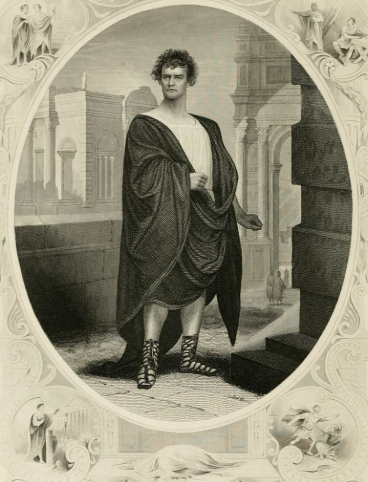“Wings of Desire” Successfully Breaks Fantasy Genre Tropes
Amherst Cinema will screen “Wings of Desire” on Dec. 2 and 4, the 1987 classic film of German cinema and a quintessential artifact from the time of two Germanys. The movie’s straightforward humanism is textured with an enchanted, meditative style that has earned it an immense following over the decades, and which has repeatedly confirmed its status in the international arthouse scene.
Despite its age, “Wings of Desire,” a story about two angels roaming around Berlin, firmly plants itself in the more impoverished of cinema’s genres: fantasy. It is this curious and charming distinction that ought to put this old European film in the immediate attention of the general audience.
The list of fantasy films that have withstood the test of time is sparse. “Lord of the Rings” may be the immediate first, followed by the “Harry Potter” films, then lesser adaptations of lesser fads and finally a few niche curiosities from the 1980s that all strain credibility.
Unlike its cousin science fiction, fantasy never managed to achieve voguish irony or thematic capaciousness on the big screen. Even the universally-acclaimed adventures of hobbits and friends were too earnest and too simple to find fellowship with robots ruminating on what it meant to be human.
It is on these two fronts that “Wings of Desire” swoops in to surprise. Replace robots with angels and what remains is a perfect byline for the experience.
Two angels, Damiel (Bruno Ganz) and Cassiel (Otto Sander), wander around Berlin, observing people. Unlike many serious fantasy and sci-fi films, in this film it is the humans who mumble monologues about life and its meanings.
The angels are assigned spectators since time immemorial, observing the pace of our folly. It is a clever sleight of form that attracts our sympathy for these inhuman creatures. They are not everymen amidst fantastical inventions; they are the inventions among everymen that occupy the same role as the audience watching the film.
What’s more, that identification runs both ways. “Wings of Desire” alerts us as the audience to the inhuman role of spectatorship: our fundamental disconnect from the world and characters of the film. That this refusal of fantasy actually coexists with fantasy is the ambitious edge of the film, the quality that holds our attention. Our interest in the film develops as the angels’ interests in the people they are observing.
As the film canvasses the psychological landscape of 20th century Berlin, one of the angels, Damiel, feels inexplicably invested in the puzzlement of the humans’ lives. The audience, too, is enraptured by the same world.
At times, the loaded whispers of people briefly separate from the usual confusion of their words with a certain existential clarity. That clarity soon disappears into the massive, shifting crowd of extras in this film, but the audience learns to hope for the next micro-story to present itself.
Damiel learns this lesson alongside us, and more and more, he becomes dissatisfied with the distance demanded of his fellow angels. Lesson is a useful word in “Wings of Desire.” The film is sincere and didactic in its celebration of the human spirit that humbles the cosmic forces — again, not unlike “Lord of the Rings.” But this involvement of the audience as spectators of the spectator of the film endows “Wings of Desire” with a lasting complexity. There are no dramatic twists in this film. It is a sober, contemplative film, and as the stereotype may suggest, the pace loiters in its thoughts from slow start to slow finish.
But there is a fittingly quiet, formal twist, particularly with the audience’s discussed identification with Damiel. Namely, if Damiel is moving away from the role of passive spectatorship, what must our response be? In following his steps, the audience returns to society, perhaps as better, kinder people. But this return is also a departure from the film itself. Appropriately, the pedagogy of the film prepares the audience for graduation — to live out, rather than merely understand its message.
“Wings of Desire” decidedly rejects the escapist strains of fantasy storytelling, directing our flight to the wider firmament of reality. It critiques the incompleteness of self-referentiality and puritanical formalism, reminding us that the lights will come up, and we will have to leave the theater. And as it rejects the excesses of genre, it also rejects the excesses of arthouse.
A critic could maybe fault its teacherly inclinations as too overbearing or condescending. One could perhaps adopt the structure of the film’s critique of narcissist cinema and criticize the insufficiencies of its open-handed humanism in discussing the undeniably political specifics of Berlin in that era.
But to paint a story in broad strokes is at the very least a sign of overarching aspirations; as “Wings of Desire” contains lowbrow and highbrow art, simplicity and thoughtfulness, there is no doubt one will find a multitude of pleasures in this deservedly remembered film.




Comments ()